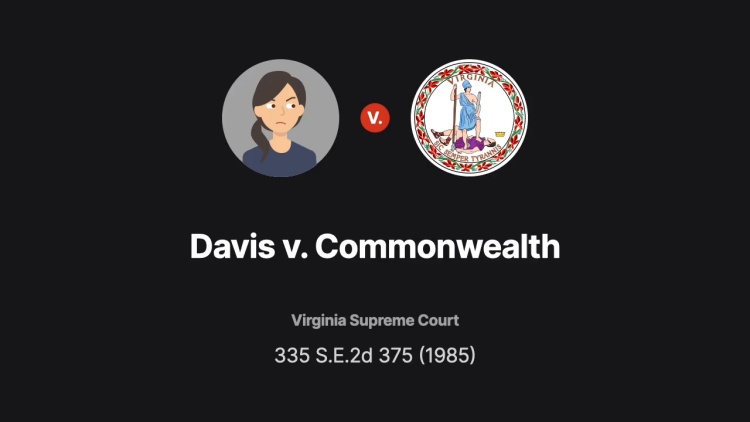Davis v. Commonwealth
Supreme Court of Virginia
230 Va. 201, 335 S.E.2d 375 (1985)
- Written by Craig Conway, LLM
Facts
On a cold afternoon, a paramedic with the Lynchburg Fire Department responded to a call at a house occupied by Mary B. Davis (defendant) and her mother, Emily B. Carter. The paramedic found Carter, deceased, lying on a bed. There was no heat in Carter’s room. The only food in the house was two cans of soup, a can of juice, and an open box of macaroni and cheese. However, there was an operable stove, a supply of firewood, and a color television found in Davis’ room. A forensic pathologist concluded that Carter had died from “pneumonia and freezing to death due to exposure to cold with a chronic state of starvation.” Davis was charged with involuntary manslaughter and waived her right to trial by jury. At trial, the forensic pathologist testified that “no one survives” with the body temperature that Carter had and that Carter had not eaten for at least 30 days. Additionally, evidence suggested that Carter had been senile and completely disabled for a number of years and that Davis was responsible for the total care of her mother. Davis was Carter’s representative to receive food stamps and was authorized to receive Carter’s social security benefits. Davis was convicted of involuntary manslaughter and she appealed.
Rule of Law
Issue
Holding and Reasoning (Stephenson, J.)
What to do next…
Here's why 911,000 law students have relied on our case briefs:
- Written by law professors and practitioners, not other law students. 47,100 briefs, keyed to 997 casebooks. Top-notch customer support.
- The right amount of information, includes the facts, issues, rule of law, holding and reasoning, and any concurrences and dissents.
- Access in your classes, works on your mobile and tablet. Massive library of related video lessons and high quality multiple-choice questions.
- Easy to use, uniform format for every case brief. Written in plain English, not in legalese. Our briefs summarize and simplify; they don’t just repeat the court’s language.





